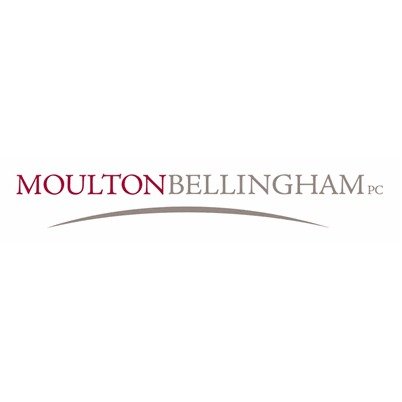Best Public-Private Partnerships (PPP) Lawyers in Montana
Share your needs with us, get contacted by law firms.
Free. Takes 2 min.
Or refine your search by selecting a city:
List of the best lawyers in Montana, United States
About Public-Private Partnerships (PPP) Law in Montana, United States
Public-Private Partnerships, commonly known as PPP or P3, are cooperative arrangements between public entities (like state or local governments) and private sector companies to finance, build, and operate projects. In Montana, PPPs are increasingly being used for infrastructure projects such as roads, bridges, public buildings, water systems, and technological development. PPP arrangements aim to leverage private sector expertise and capital, while ensuring that public interests and accountability are maintained. The framework for these partnerships is shaped by a mix of federal and state laws, local ordinances, and regulatory practices specific to Montana.
Why You May Need a Lawyer
Entering into a Public-Private Partnership in Montana involves complex legal documents, financial arrangements, and regulatory requirements. Here are some common situations where legal advice can be crucial:
- Drafting, reviewing, and negotiating PPP agreements
- Navigating bidding and procurement regulations
- Understanding risk allocation and responsibilities between parties
- Ensuring environmental, construction, and operational compliance
- Resolving disputes or handling contract breaches
- Dealing with public concerns, transparency requirements, or legislative changes
- Securing permits, licenses, and funding approvals
- Managing asset transfers and handling end-of-term provisions
A specialized PPP lawyer can help mitigate risks, ensure compliance with Montana’s legal requirements, and safeguard both public and private interests.
Local Laws Overview
Montana law provides several guidelines and statutes relevant to PPPs in the state:
- Enabling Legislation: Montana has adopted specific statutes for certain types of public-private partnerships, such as transportation and infrastructure projects. For instance, Montana Code Annotated (MCA) Title 60 covers transportation, including provisions for design-build and alternative project delivery methods.
- Procurement Requirements: State and local agencies must follow competitive bidding and transparency rules to ensure fairness. Some types of projects may require public notice, hearings, and approval processes under both state and local laws.
- Contract Provisions: Montana laws require that key terms be defined in PPP contracts, including performance standards, maintenance responsibilities, revenue sharing, financing, and dispute resolution mechanisms.
- Environmental and Land Use Regulations: Compliance with state environmental laws, such as the Montana Environmental Policy Act (MEPA), is usually a prerequisite for major PPP projects.
- Oversight and Accountability: PPPs in Montana are overseen by government agencies to ensure projects fulfill public objectives and that private partners meet their obligations.
Each PPP is unique and may be subject to additional local ordinances or federal regulations, so it is important to understand the full scope of legal responsibilities before moving forward.
Frequently Asked Questions
What is a Public-Private Partnership in Montana?
A Public-Private Partnership in Montana is a contractual relationship between a government entity and a private company to develop, finance, or manage a public infrastructure or service project.
Which types of projects commonly use PPPs in Montana?
Road and highway construction, bridges, water and wastewater projects, public buildings, and information technology infrastructure are commonly delivered through PPP arrangements in Montana.
What are the key benefits of pursuing a PPP in Montana?
PPPs allow for sharing of financial risk, access to private expertise and innovation, faster project completion, and potential cost savings for taxpayers.
How are PPPs regulated at the state level in Montana?
PPPs are subject to Montana state laws, including procurement, contracting, and environmental statutes. Certain agencies or project types may have their own enabling legislation outlining specific rules.
Are there specific approval processes or permits for PPP projects?
Yes. PPP projects often require multiple layers of government approval, environmental permits, and regulatory reviews before they can move forward.
What are some risks associated with PPP projects?
Risks may include cost overruns, project delays, financing issues, changes in law or regulation, disputes between partners, and challenges in maintaining service quality or public accountability.
Can local governments in Montana create their own PPPs?
Many local governments in Montana have authority to enter into PPPs, but they must comply with state statutes and local procurement rules.
Does a private partner assume operational responsibilities?
It depends on the agreement. In some cases, the private partner may design, build, operate, and maintain the project for a set period before transferring it back to the public sector.
How is project financing typically arranged in Montana PPPs?
Financing may involve private investment, public funding, federal grants, bond issuances, or a combination. The precise structure depends on the project and contractual terms.
When should I contact a PPP lawyer in Montana?
You should consult a lawyer as early as possible - before entering negotiations, responding to RFPs, or making financial commitments - to ensure your rights and interests are protected.
Additional Resources
If you are seeking more information or support about PPPs in Montana, consider these helpful resources:
- Montana Department of Transportation (MDT): Administers many transportation-related PPPs and alternative project delivery methods.
- Montana Department of Commerce: Provides economic development guidance and sometimes supports PPP projects for community infrastructure.
- Local Government Offices: City and county governments may have their own PPP policies or active projects.
- Montana State Legislature: Holds information about current statutes and any proposed changes to PPP or infrastructure laws.
- American Bar Association - Infrastructure and Regulated Industries Section: Offers professional legal guidance and best practices for PPP lawyers.
Next Steps
If you believe a Public-Private Partnership is right for your project or organization in Montana, or if you are responding to a government PPP initiative, here is what to do next:
- Consult with a lawyer experienced in PPP law and Montana’s regulatory landscape
- Collect all relevant documents, proposals, and project details
- Identify applicable government requirements or funding sources
- Engage with local agencies early to clarify expectations and regulatory timelines
- Request a legal review of proposed contracts and agreements to avoid costly mistakes
Preparation and legal guidance are key to successful PPP arrangements. Seeking legal advice early helps ensure your project is well-structured, legally compliant, and positioned for long-term success in Montana.
Lawzana helps you find the best lawyers and law firms in Montana through a curated and pre-screened list of qualified legal professionals. Our platform offers rankings and detailed profiles of attorneys and law firms, allowing you to compare based on practice areas, including Public-Private Partnerships (PPP), experience, and client feedback.
Each profile includes a description of the firm's areas of practice, client reviews, team members and partners, year of establishment, spoken languages, office locations, contact information, social media presence, and any published articles or resources. Most firms on our platform speak English and are experienced in both local and international legal matters.
Get a quote from top-rated law firms in Montana, United States — quickly, securely, and without unnecessary hassle.
Disclaimer:
The information provided on this page is for general informational purposes only and does not constitute legal advice. While we strive to ensure the accuracy and relevance of the content, legal information may change over time, and interpretations of the law can vary. You should always consult with a qualified legal professional for advice specific to your situation.
We disclaim all liability for actions taken or not taken based on the content of this page. If you believe any information is incorrect or outdated, please contact us, and we will review and update it where appropriate.
Browse public-private partnerships (ppp) law firms by city in Montana
Refine your search by selecting a city.










